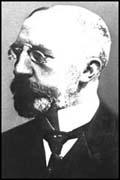Karl von Stürgkh

Karl von Stürgkh was born on 30th October 1859. He came from a wealthy family that owned large estates in Styria. He was elected a member of the Austrian Imperial Council in 1891. A conservative who opposed social reform, Stürgkh was a significant figure in the fight against universal suffrage. However, this was achieved following a General Strike in 1907.
In 1909 Count Richard von Bienerth-Schmerling appointed Stürgkh as education minister. He retained this position under Paul Gautsch von Frankenthurn. Stürgkh supported German dominance of the Triple Alliance.
In the 1911 the Social Democratic Workers' Party (SDAP) became the largest party in the Austrian Parliament. However, the conservatives retained power and Stürgkh was appointed premier of Austria by Emperor Franz Joseph on 3rd November, 1911. He reacted to opposition from the socialists by suspending the Austrian parliament (Reichsrat) in March 1914 and governed by royal decree.
On 28th June, 1914, the heir to the throne, Archduke Franz Ferdinand, was assassinated in Sarajevo. Josef accepted the advice given by his foreign minister, Leopold von Berchtold, that Austria-Hungary should declare war on Serbia. On the outbreak of the First World War, Josef allowed the military to take over the running of the country. Stürgkh imposed strict press censorship and restricted the right of assembly and showed his contempt for democracy by converting the Reichsrat into a hospital.
Friedrich Adler, the son of Victor Adler, the leader of the SDAP, who was opposed to the war, assassinated Karl von Stürgkh on 21st October 1916. Adler was sentenced to death but was pardonned by Emperor Karl.
